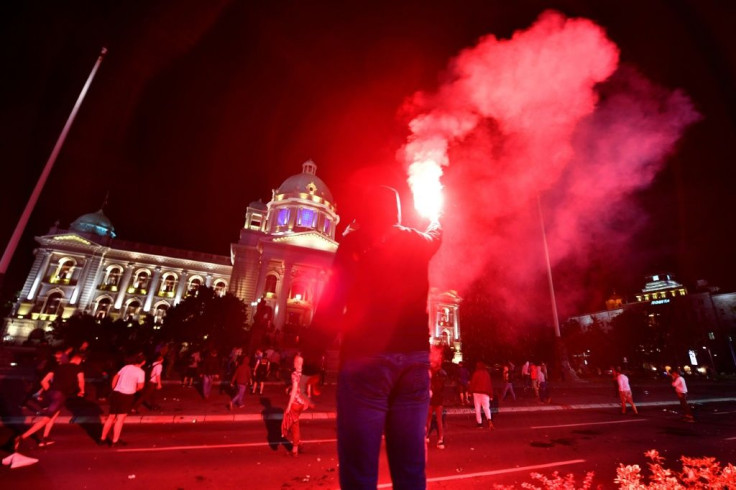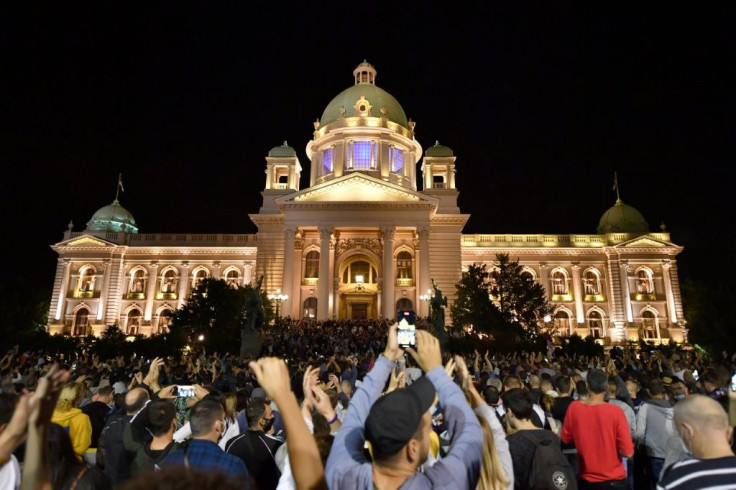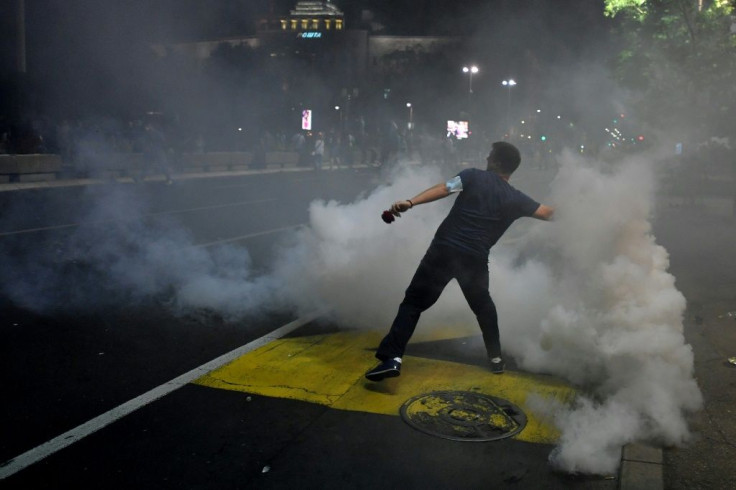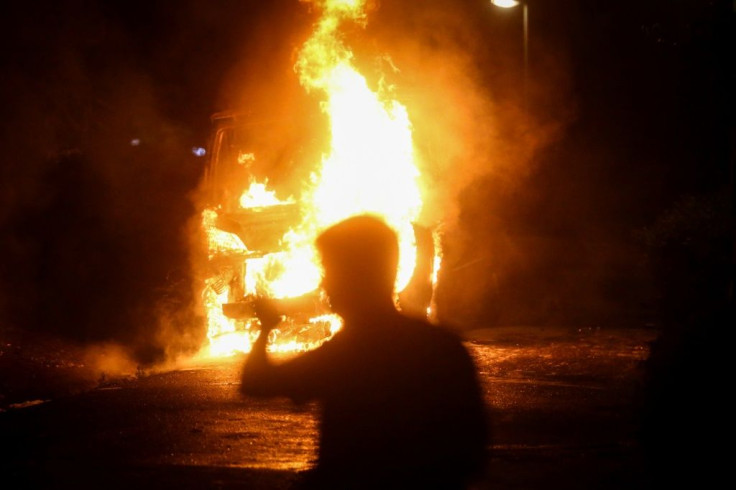Belgrade Protest Over Virus Management Turns Violent

The Serbian capital was hit by clashes for a second night on Wednesday as police clashed with protesters outraged over the government's handling of the coronavirus pandemic.
Clouds of tear gas and smoke filled the city centre in chaotic scenes that mirrored violence the night before, when thousands came out to protest the return of a weekend lockdown due to a spike in new cases.
Although President Aleksandar Vucic said Wednesday that the weekend curfew is likely to be scrapped, several thousand people again gathered in front of the parliament to protest.
Their anger is focused on the powerful president, who critics accuse of inviting a second wave of coronavirus infections by rapidly lifting initial lockdown measures before an election in June.
"The government only seeks to protect its own interests, the people are collateral damage," said Jelina Jankovic, a 53-year-old who attended the rally, which brought together citizens from the left to the far-right.

Vucic's Serbian Progressive Party (SNS) won the June poll by a landslide in a vote boycotted by the main opposition.
Since then, coronavirus infections have shot up to more than 300 daily, overwhelming hospitals.
"We've had enough of the manipulating of the data of COVID-19", said another protester Danijela Ognjenovic, referring to accusations that authorities are under-reporting the death toll.

After a peaceful start, Wednesday's rally saw protesters hurl flares and other objects at police who responded with tear gas.
An opposition leader who had boycotted the June election, Bosko Obradovic, told regional TV broadcaster N1 that he was beaten by police in the melee.
Once the main crowd outside the parliament building was dispersed, anti-riot police and bands of demonstrators clashed on surrounding streets.

Ten officers were injured, said Interior Minister Nebojsa Stefanovic.
Earlier in the day, Vucic said he was still in favour of a weekend lockdown but that a government crisis team would "decide tomorrow".
"There will definitely be tightening of the measures for Belgrade" though the "crisis team seems to think that there should be no curfew", he said, distancing himself from the decision.
The 50-year-old, who is accused of authoritarianism despite holding a ceremonial post, branded the protesters as "fascists" and said there were suspicions of "meddling of foreign intelligence", without providing any evidence.
Vucic also conceded that some police officers, who were accused of excessive force on Tuesday night, "failed" and that they would be held accountable.
Scenes of police brutality were captured on TV, including an incident on Tuesday in which officers used batons to beat three men sitting peacefully on a bench.
The Council of Europe's Human Rights Commission Dunja Mijatovic condemned the "violent dispersal of demonstrators", saying it "raises serious human rights concerns".
Serbian police chief Vladimir Rebic, however, said officers "used force only when it was used against us", adding that some 40 police were injured the first night.
The new spike of coronavirus cases comes two months after Serbia lifted almost all restrictions to allow major sporting events with thousands of spectators and national elections in June.
The government has reported nearly 17,000 infections and 330 deaths in a population of seven million.
© Copyright AFP {{Year}}. All rights reserved.





















